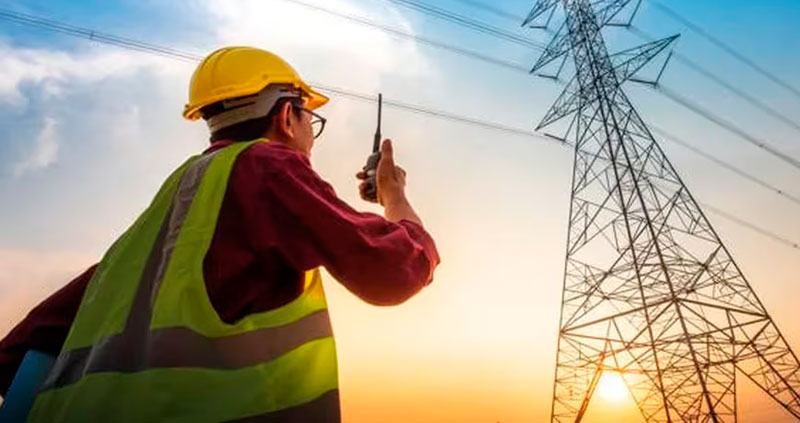Through his X account, President Gustavo Petro announced that Colombia will soon restart the sale of energy to Ecuador, which had been suspended due to the critical level of reservoirs in the country as a result of the El Niño phenomenon.
“By making technical reviews, we are about to sell energy to Ecuador again and help solve its rationing problems. “Energy integration is essential to be resilient in the climate crisis,” the president wrote in his X account.
On April 15, the Minister of Mines and Energy, Omar Andrés Camacho, had announced that the country had suspended the export of energy to Ecuador due to alerts about possible rationing.
“Since Easter we have limited the export of energy to Ecuador. At this moment we are not exporting energy because we have all the thermal power at its maximum generation potential. So all the measures have been adopted, both renewable and thermal, the generation potential with hydraulic plants is also available these days,” the portfolio manager had expressed.
Likewise, in Ecuador they began electricity rationing periods of up to five hours, responding not only to the suspension of supply by Colombia, but also to the crisis of the El Niño phenomenon, which has affected the entire continent. Such a situation caused President Daniel Noboa to ask his Minister of Energy, Andrea Arrobo, to resign.
His replacement, Roberto Luque, had already announced the cutting of an interconnection between both countries, because despite the suspension of supply, the electrical systems were still “sending a certain amount of energy through high voltage lines.”
“No one was passing electricity. Neither from Ecuador to Colombia nor from Colombia to Ecuador. It is more of an issue of signal stability or frequency, it is convenient for us to be connected,” said the Ecuadorian minister.
Furthermore, he explained that this situation arises especially when the Coca Codo Sinclair hydroelectric plant, which is in the north of the country, in the province of Napo, stops operating.
80% of Colombia’s municipalities are at risk of shortages due to the El Niño phenomenon
Colombia is currently facing a severe water crisis, with nearly 80% of its territory threatened by significant water shortages. This worrying panorama was highlighted during a meeting between the Attorney General’s Office and high-level government officials, in which the imminent threat and the necessary measures to counter the situation were discussed.
Attorney Margarita Cabello emphasized the need for coordinated action to confront the effects of the El Niño phenomenon, as well as to optimally prepare for La Niña.
The risk of shortages is not only limited to the lack of water; The operation of reservoirs in the country is also seriously compromised, affecting 692 municipalities in 25 departments. The shortage has led to 325 municipalities in 23 departments already facing severe water supply problems, with 58 of them in a state of rationing.
The Minister of Environment, Susana Muhamad, warned that the situation in Bogotá could extend until 2025, keeping the country on alert due to the lack of rain and poor management of available water resources.
Faced with this critical situation, the Government has committed to investing more than 80,000 million pesos in initiatives aimed at ecological restoration and productive reconversion, in order to ensure the water supply in the capital and other affected areas. Additionally, the Energy and Gas Regulation Commission (Creg) has issued a resolution to promote the efficient use of electrical energy, which seeks to help in the recovery of reservoir levels nationwide and avoid a deeper crisis.
The Attorney General’s Office urges inter-institutional collaboration and the strengthening of emergency and contingency plans to effectively address the water and energy crisis. The conversations between the Attorney General’s Office, the Government and representatives of the water and energy sector focus on measures to improve emergency response and facilitate the transition between the El Niño and La Niña phenomena. With Infobae
